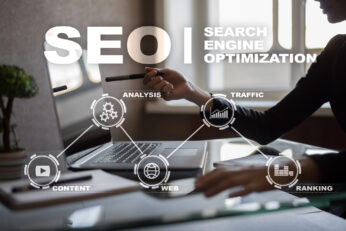Stay ahead by preparing to navigate the evolving landscape of SEO, including the value of E-E-A-T, the results of Google’s antitrust trial, AI, and technical advancements.
As 2024 draws to a close, SEO continues to evolve rapidly, with 2025 promising even more disruption. From Google’s antitrust trial to the rise of AI, the need for originality and technical excellence will define success in the coming year. Let’s explore the key trends reshaping SEO strategies.
1. E-E-A-T and the Push for Originality
E-E-A-T stands for Experience, Expertise, Authoritativeness, and Trustworthiness, a framework Google uses to evaluate the quality of content. Introduced in Google’s search quality guidelines, E-E-A-T underscores the importance of creating content backed by personal or professional experience and reliable sources.
In 2025, originality will remain paramount. Google’s “OriginalContentScore,” as referenced in leaked documents, signals the importance of unique, high-quality content. To stand out, brands must leverage their data, customer reviews, and original research to deliver personalized insights.
Highlighting authorship and the human experience behind content can bolster authenticity and trust. This means showcasing your team’s expertise through updated author bios and integrating user-generated insights to address customer pain points and fill content gaps.
2. Search: The Uncloaking of Google’s Secrets via the Antitrust Trial
Google’s ongoing antitrust trial could dramatically alter the search landscape. If forced to share its algorithms and data, competitors may accelerate their own search engine development, leading to a diversification of search platforms.
For SEOs, this means crafting strategies for multiple search engines rather than just Google. The trial could also expose ranking factors and user behavior insights, enabling unprecedented optimization opportunities. However, this transparency may tempt some to manipulate rankings, risking a return to outdated SEO tactics.
The Department of Justice is expected to release proposals in late 2024, with potential impacts rolling into 2025. For now, SEOs should prepare to adapt to an increasingly competitive and diverse search environment.
3. AI as a Powerful (or Terrible) Assistant
AI continues to revolutionize SEO, but over-reliance on generic AI tools can lead to uniformity and mediocrity. Many AI systems operate as “black boxes,” delivering results without transparency, which can undermine trust.
To combat these challenges, consider building or customizing AI tools tailored to your brand. Platforms like Google’s Gems and GPTs from ChatGPT allow you to train AI on your proprietary data, such as customer reviews and Google Analytics, ensuring a unique and secure approach.
While AI can streamline workflows, it can’t replace human creativity or critical thinking. To excel in 2025, SEOs must balance automation with personal experience, ensuring content reflects their unique brand voice and originality.
4. The User Versus the Keywords
2025 will prioritize user intent over keyword density. SEO strategies should center around solving user pain points and delivering valuable insights rather than targeting high-volume keywords.
Long-tail searches and natural language queries dominate modern search behavior. Instead of focusing on competitive, generic terms, create content that directly addresses user challenges. Search engines reward content that offers clear, relevant, and actionable information, emphasizing user satisfaction over traditional keyword strategies.
5. Technical SEO Will Matter More Than Ever
Technical SEO remains a cornerstone of success. Optimizing structured data, site architecture, and page speed ensures search engines can easily crawl and rank your website. Platforms dependent on JavaScript must address rendering issues to avoid visibility problems.
Accessibility and mobile optimization are non-negotiable. Core Web Vitals and mobile-friendly designs directly influence rankings. Leveraging tools like Google Search Console and Bing Webmaster Tools can help identify and resolve technical challenges.
In 2025, refining your site’s technical foundation will be critical for long-term visibility and user satisfaction.
Learning and Adapting: The Key to SEO Success
SEO is an ever-changing field. Staying agile and continuously improving across multiple platforms and strategies will set successful SEOs apart. With these trends in mind, 2025 offers an exciting opportunity to innovate and thrive in an increasingly dynamic digital landscape.
Prepare, adapt, and evolve to stay ahead.
Original Source – Search Engine Land – Maria Georgieva – https://searchengineland.com/seo-trends-2025-447745









